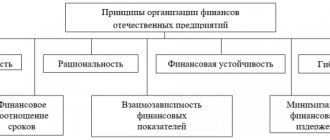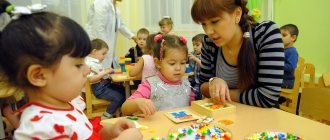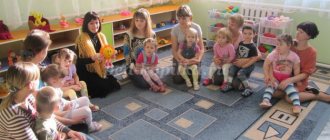Plan for working with parents
Plan of work with parents of 5th grade students
Goals:
- help parents improve their pedagogical culture;
- prepare the parent team for greater independence and flexibility in communicating with teachers;
- develop the communication skills of parents in a classroom parent group;
- help reduce risk factors in parent-child relationships
Tasks:
- introduce parents to the prospects for the development of the children's team and give them the opportunity to become active participants in class activities;
- educate parents on issues of family education and psychological education with the involvement of various specialists, possibly from among the parents themselves;
- create conditions for making joint decisions on issues of life of the class team.
Forms of work with parents:
- holding class parent meetings
- lectures for parents
- individual and group consultations
- survey
- testing
- visiting families
- parent interaction trainings
- providing assistance to parents in organizing students’ extracurricular time;
- involving parents in school-wide and class events (holidays, concerts, sports competitions).
The content of the work:
1. Study of students’ families, the situation of children in the family, their living conditions: creation of a “family social passport” for permanent students and students from disadvantaged families; early identification of families at risk, visiting these families together with the PDN inspector.
2. Regular parent training (lecture hall)
3. Legal education of parents.
4. Conducting individual and group consultations: conversations to prevent conflict situations; timely referral to a specialist for consultation.
5. Involving parents in cooperation in all areas of activity: assistance in carrying out creative activities; assistance in strengthening the material and technical base; assistance in improving the school; assistance in organizing sporting events; assistance in organizing excursions and trips.
6. Encouraging parents who actively participate in the life of the school and class.
7. Involving the school-wide parent committee in the work.
8. Participation in traditional school-wide events.
Topics of school-wide parent-teacher meetings
| Deadlines | Subject |
| 1 | |
| 2 | |
| 3 | |
| 4 |
Topics for class parent meetings
| Deadlines | Subject |
| __ October | Adaptation for fifth graders. |
| __ February | How to improve your child's performance |
| __April | Children's loneliness. Dangers and Risks |
| ___May | Final parent meeting. |
| date | Event | Responsible |
| September | Questionnaire “My child” | Classroom teacher |
| Collection of documents and certificates for the student’s personal file, medical certificates | Classroom teacher | |
| Individual consultations “Results of the first days of school” (daily if necessary | Classroom teacher | |
| Selecting a parent committee, drawing up a work plan for the parent team | Classroom teacher | |
| Preparation for the “Autumn Birthday Festival” | Classroom teacher | |
| Conversation with parents of low-performing students | Classroom teacher Subject teachers, school psychologist, social worker. teacher | |
| Conversations between a school psychologist and parents of children at risk | Classroom teacher School psychologist | |
| Visiting students' families | Classroom teacher Social teacher | |
| Exploring student interests | Classroom teacher | |
| Create positive motivation for schooling | Classroom teacher School psychologist | |
| October | Pedagogical consultation "Difficulties and joys of school life" | Classroom teacher Subject teachers, school psychologist, social worker. teacher |
| Identify learning difficulties in order to adjustments | Classroom teacher School psychologist | |
| Individual conversations and consultations with parents (if necessary) | Classroom teacher Subject teachers, school psychologist, social worker. teacher | |
| Preparing for Mother's Day. “We’re drawing mom. We write poems" | Classroom teacher | |
| Preparing crafts from natural materials for an exhibition for the holiday “Harvest Day” | Classroom teacher | |
| Parent meeting “Adaptation for fifth graders” Development of a memo for parents | Classroom teacher | |
| Summarize the first quarter. Talk about the dynamics of the process | Classroom teacher | |
| November | Pedagogical consultation "Difficulties and joys of school life" | Classroom teacher Subject teachers, school psychologist, social worker. teacher |
| Individual conversations and consultations with parents (if necessary) | Classroom teacher Subject teachers, school psychologist, social worker. teacher | |
| Collection of documents for students’ personal files | Classroom teacher | |
| Create conditions for the unity of the class team, for parents to understand their role in the child’s life | Classroom teacher | |
| December | New Year's holidays (school and class) with the involvement of parents | Classroom teacher |
| Conversations with parents about students’ academic performance, behavior and attendance (if necessary) | Classroom teacher Subject teachers, school psychologist, social worker. teacher | |
| Recommendations for some students about the need for additional classes in some subjects | Classroom teacher Subject teachers, school psychologist, social worker. teacher | |
| Making toys for the New Year tree | Classroom teacher | |
| Bringing to the attention of parents the results of testing of 5th grade students for the primary school course | Classroom teacher | |
| January | Identify learning difficulties in order to adjustments | Classroom teacher |
| Individual consultations and conversations with subject teachers, social workers. teacher, school psychologist (if necessary) | Classroom teacher | |
| Control over the appearance of students. | Classroom teacher | |
| February | Weekend club "Pancake week" Holiday with the family "Maslenitsa" | Classroom teacher |
| Involving parents in classroom activities | Classroom teacher | |
| Individual conversations and consultations with parents (if necessary) | Classroom teacher Subject teachers, school psychologist, social worker. teacher | |
| Involving parents in the celebration of Defender of the Fatherland Day. | Classroom teacher | |
| Monitoring student progress and attendance. Bringing progress results to the attention of parents | Classroom teacher | |
| Pedagogical consultations Difficulties and joys of school life" | Classroom teacher | |
| Identify learning difficulties in some students in order to correct them | Classroom teacher | |
| March | Involving parents in the celebration of March 8th | Classroom teacher |
| Individual conversations and consultations with parents (if necessary) | Classroom teacher Subject teachers, school psychologist, social worker. teacher | |
| Parent meeting. Results of the third quarter | Classroom teacher | |
| April | Individual conversations and consultations | Classroom teacher Subject teachers, school psychologist, social worker. teacher |
| Book week. Textbook repair | Classroom teacher Librarian | |
| May | Summing up the academic year | Classroom teacher |
| Collection of data on students’ summer holidays | Classroom teacher | |
| Conduct a survey "Satisfaction with school life" | Classroom teacher | |
| Involve parents in organizing the trip | Classroom teacher | |
| Carry out a final reflection with parents on the question “How has my child changed. What's new! "+" and "-" training. | Classroom teacher |
Composition of the parent committee
| Orders | FULL NAME. | Telephone |
| Chairman | Akhmatynova Tatyana Gennadievna | 89600940554 |
| deputy chairman of the parent committee, responsible for the effectiveness of the educational activities of students in the class, | Artemyeva Elena Alekseevna | 89053799838 |
| Deputy Chairman of the Parents Committee, overseeing the participation of parents and class students in extracurricular activities | Elkina Irina Nikolayevna | 89613349704 |
| Deputy Chairman of the Parents Committee, responsible for classroom management | Alexandrova Svetlana Gennadievna | 89063367792 |
| Treasurer | Ivanova Lyudmila Valerianovna | 89093664989 |
Topics of parent committee meetings
| № p/p | Content | Deadlines | Responsible |
| 1. | — Approval of the work plan for the academic year; | September | Classroom teacher Chairman of the Parents Committee |
| 2. | — On the classes of students in the evening, on weekends (Saturday, Sunday) and measures to improve the work of teachers and parental responsibility in this matter; — On the prevention of neglect and juvenile delinquency. | December - January | Classroom teacher Chairman of the Parents Committee |
| 3. | Providing assistance to class. manager in carrying out events at various levels | February | Chairman of the parent committee. Deputy Chairman of the Parents Committee, overseeing the participation of parents and class students in extracurricular activities |
| 4. | Work to strengthen the material and technical base of the school. Help with school renovations | April | Chairman of the Parents Committee |
PARENT COMMITTEE OF CLASS OBYA3AH:
- assist the class teacher in establishing contact with the group of parents;
- involve parents in joint activities with children;
- influence the formation of a culture of parental communication;
- be a mediator between family, school, and public organizations in difficult life situations;
- stimulate selflessness and responsibility in raising the younger generation;
- come up with initiatives and proposals to improve the educational process at school;
- comply with ethical standards in communicating with students, teachers and their parents.
THE PARENTAL COMMITTEE HAS THE RIGHT:
- actively participate in the organization of the educational process in the classroom;
- assist the class teacher and the school in purchasing textbooks and aids;
- visit students at home together with the class teacher;
- attend lessons and extracurricular activities;
- express your opinion about activities carried out in class;
- take, together with the class teacher, certain measures of influence against those parents who are not involved in raising their children;
- conduct conversations with problem students;
- maintain close contact with law enforcement agencies and public organizations to protect the rights of the child and family;
- involve, if necessary, various kinds of specialists to solve family problems.
CHOICE OF PARENTAL COMMITTEE
The parent committee is elected at a parent meeting at the beginning of the school year for a period of one school year. But if there is an urgent need, the parent committee can be re-elected urgently. It is very important that work in the parent committee will allow him to understand the problems that the class teacher faces and actively participate in solving them.
The meeting of parents has the right to demand an extraordinary report from the parent committee if it doubts its actions. The class parent committee participates in meetings of the School Council, school conferences, and meetings of class parent committees with the school administration.
Meetings of the class parent committee are held 3-4 times per academic quarter. The decisions made are recorded in the minutes, which are kept by the chairman of the parent committee. Responsibilities in the parent committee are distributed as follows:
a) chairman of the parent committee; 6) his deputies responsible for certain areas of work; c) treasurer.
Chairman of the Parents Committee
is responsible for organizing the activities of the parent committee, together with deputies, draws up a work plan for the parent committee; assists the class teacher in preparing and conducting parent-teacher meetings, and is a representative of the group of class parents in the work of the school’s parent committee. He participates in protecting the rights of class students in judicial structures, if there is an urgent need for this.
The chairman of the parent committee, together with school representatives, participates in visiting dysfunctional families and helps resolve conflict situations in the children's team. If the chairman of the parent committee is responsible for organizing the work of the parent committee as a whole, then his deputies are responsible for certain areas of work.
Deputy Chairman of the Parents Committee, responsible for the effectiveness of the educational activities of students in the class,
organizes the active participation of parents in the educational activities of children. It organizes parents to participate in lesson visits, classroom and school art days. His competence includes assisting the class teacher in purchasing the necessary teaching aids, organizing various competitions and brain rings, helping gifted students find sponsors for participation in various olympiads, competitions and festivals, organizing assistance for children who are lagging behind in their studies, and searching for opportunities for awards. students with high results in educational activities.
Deputy Chairman of the Parents Committee, who oversees the participation of parents and class students in extracurricular activities,
performs quite a multifaceted job. His competence includes involving the parents of the class in conducting classes for clubs, sections, and parent lessons. Together with the parents of the class, he participates in all joint holidays, trips, organizes excursions, trips, and entertainment events in the class. In addition, he helps the class teacher realize the capabilities of all students in the class, as well as their parents, in extracurricular activities.
Deputy Chairman of the Parents Committee, responsible for classroom management,
organizes parental assistance in renovating the classroom, decorating the classroom, and purchasing items necessary for the functioning of the classroom.
Responsibilities of treasurer
includes raising funds from parents for the needs of the class team. Together with the parent committee, the treasurer draws up cost estimates and reports to the parent meeting for the funds used. If there is a need for this, he determines funds from the budget of the class parent committee to encourage students
Sample work plan for the class parent committee
| № | Events | Deadlines |
| 1 | Parents Committee Elections | September |
| 2 | Distribution of responsibilities among members of the parent committee | |
| 3 | Approval of the work plan | |
| 4 | Creating a Databank of Parent Resources | September October |
| 5 | Assisting the class teacher during classroom and school events | during the year |
| 6 | Help with office renovations | during the year |
| 7 | Developing decisions on organizing actions and allocating voluntary financial donations aimed at improving the material and technical equipment of the classroom | during the year |
| 8 | Organization of joint activities between children and parents | throughout the year according to the plan of the class teacher |
| 9 | Parents' committee meetings | As needed |
Important aspects
You may be interested in: What is the name of the alloy of copper and nickel?
The modern family is formed and exists in a new social situation. As the foundation of the moral ideals of adolescents and children, the educational institution acts as the guarantor of their individual and social security. The family and environment influence the moral development of the child’s personality. It is the older generation that is an important link in the transmission of historical and social experience, business and emotional relationships to the younger generation.
Parents who do not have adequate information about the individual and age characteristics of their children carry out their educational functions “blindly.” This approach rarely brings positive results. The problems of single-parent families are the lack of strong interpersonal ties between fathers and children. Problems can only be solved through close cooperation between parents and teachers.
You will be interested: Bryansk State Agrarian University: professions, admission
Joint events
These forms of work by parents and teachers are especially relevant for elementary schools. In the class, an activist is selected from fathers and mothers, who are entrusted with the task of organizing various holidays and events. For example, after first-graders complete their acquaintance with the ABC book, parents, together with the teacher, organize a “Farewell to the ABC book” holiday for them. In addition to the ceremonial part, during which children, the class teacher, and parents demonstrate their creative abilities, a joint tea party with games and competitions is held. This option for spending joint leisure time has a positive effect on the cohesion of the class team.
Other interaction options
You may be interested: Aul is... The meaning of the word
The parent lecture hall is designed to introduce mothers and fathers to issues of education, improve their pedagogical culture, and help in solving specific problems.
An excellent option for interaction between the class teacher and the parents of his students is role-playing games. This form of creative collective activity allows us to identify the level of pedagogical skills. In particular, the theme of role-playing games can be as follows:
- "Family Council";
- "Morning in the house";
- "Student's workplace."
The methodology involves identifying the topic, the number of participants, dividing roles, discussing various options and positions. Both positive and negative options for resolving the situation must be considered, and then the optimal course of action must be chosen.
A debate is a reflection on the problems of education, which helps to improve the pedagogical culture of parents. It is held in a relaxed atmosphere, giving all participants the opportunity to join in the discussion of the chosen problem.
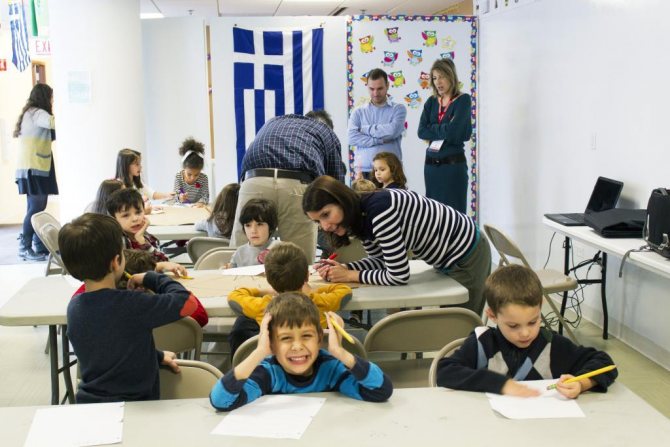
Door to door tour
The purpose of a family visit by a class teacher may vary. Psychologists consider this form of work to be the most effective, since there is personal communication between the teacher and the mother (father) of his ward.
The class teacher studies the student’s workplace and analyzes his living conditions. He talks with his parents about his character, inclinations, interests, and gives useful advice on doing his homework.
The purpose of a class teacher visiting a family may not be very pleasant. For example, a child is absent from school for a long time, and neither he nor his representatives answer the teacher’s calls. In this case, an act of visiting the family by the class teacher is drawn up, which the parents must sign. Based on this, a decision is made on subsequent actions. In particular, the class teacher can initiate a call to the guardianship and trusteeship authorities to the family.
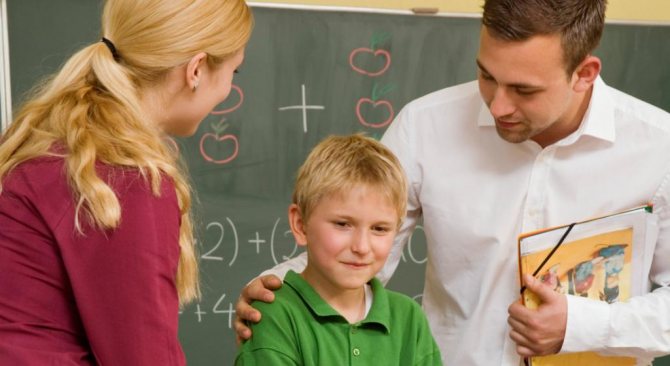
What to consider
The family visit sheet from the class teacher is given to the school principal. He, in turn, makes a decision on further actions without violating the constitutional rights of the family. Recently, many parents have a negative attitude towards the fact that teachers come to them. They believe that the purpose of a class teacher visiting a family is to recognize it as dysfunctional and remove the child from the home. This is why many mothers and fathers simply do not allow teachers to enter their home, citing constitutional rights to privacy as the reason for such actions.
Networking visits
Of course, not every schoolchild from a large family is a poorly performing student or a persistent violator of discipline. There are also families with 4-5 children who maintain friendly relations with teachers. In this case, the purpose of the class teacher’s visit to the family is to discuss some specific issues, for example, regarding the organization of a school event or excursion. A teacher can also stop by to check on a sick student and explain his homework in his subject.
According to the rules of the Federal State Educational Standard, once every quarter or every six months (depending on the work plan of the educational institution), a report from the class teacher on visits to the families of students is submitted to the school administration; it affects the target indicators of the teacher’s work (affects the amount of wages).
